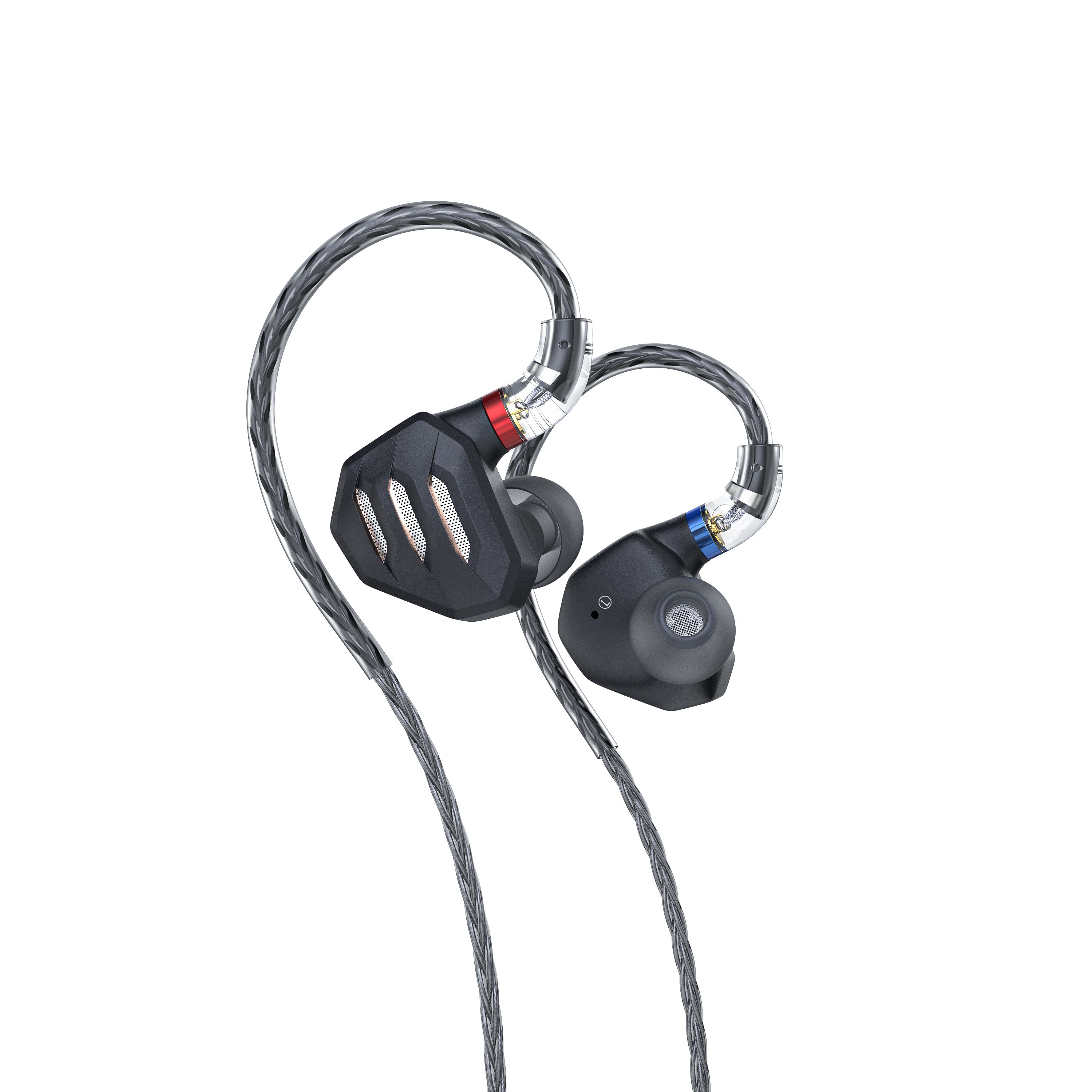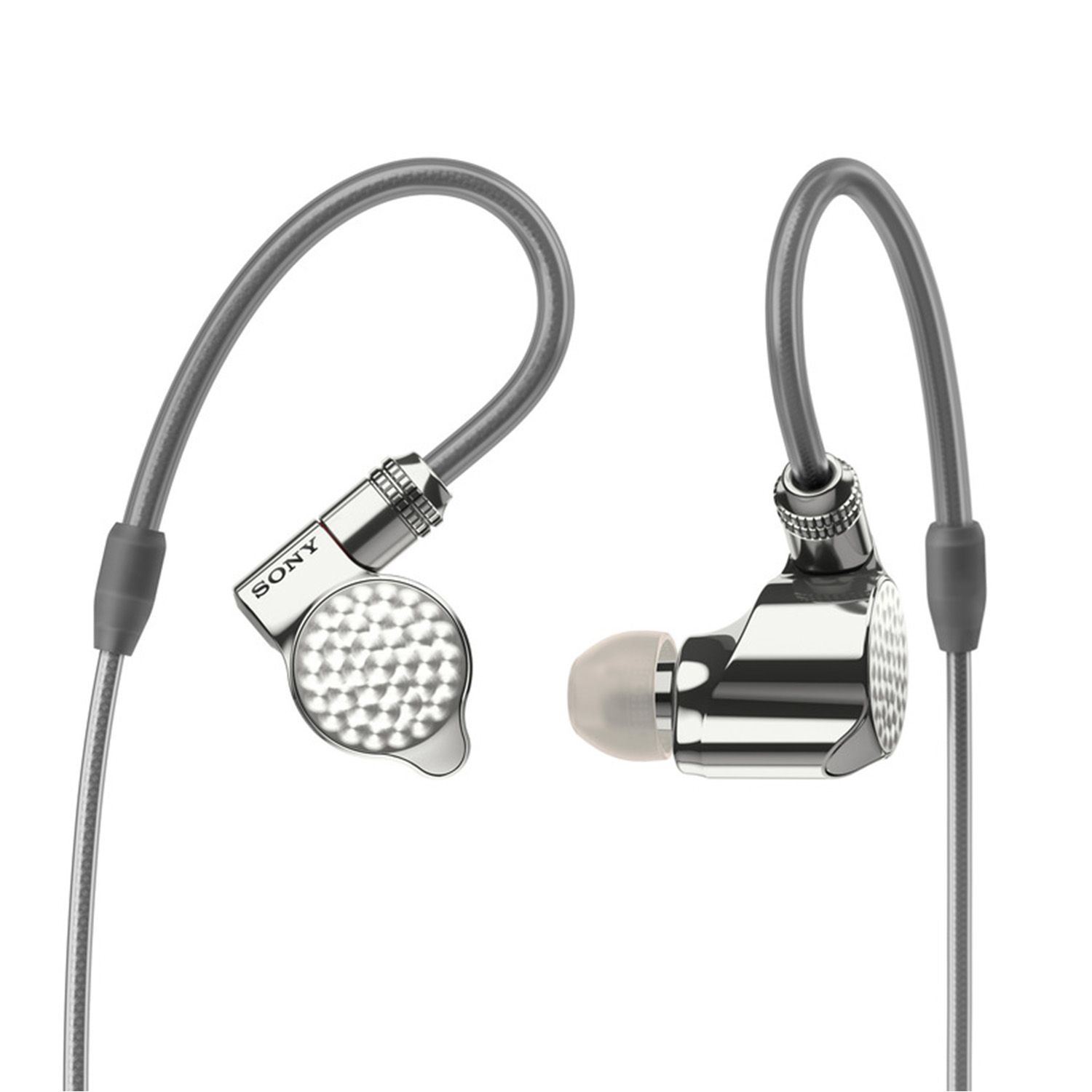FH7vs.IER-Z1R
Sound & Specs Comparison
Information
Both IEMs are widely regarded in the audiophile community. See how they differ in terms of sub-bass response, upper mids, clarity, and overall tonality. Spider charts and rating breakdowns included.
Objective Comparison
Facts, details, stuff.
| General Info | FH7 | IER-Z1R |
|---|---|---|
| Brand | FiiO | Sony |
| Country | China | – |
| IEM Description | The FiiO FH7 is a flagship hybrid IEM that pairs a 13.6 mm Dynamic Driver with four Balanced‑Armature drivers in a 4‑way crossover. Housed in lightweight aluminum‑magnesium alloy shells and paired with a detachable silver‑plated OFC cable, it offers secure comfort and easy cable swaps. Sonically, it delivers punchy, textured bass, warm, natural mids and a smooth yet detailed treble extension. The kit includes multiple silicone and memory‑foam tips plus a premium carry case for on‑the‑go listening. | Despite their small size, the Sony IER-Z1R earphones feature a sophisticated 3-way design with two dynamic drivers and a highly precise balanced armature. The sound quality is not just high-resolution—it's ultra-high-resolution, reaching an impressive frequency response of up to 100 kHz. Housed in a precisely crafted, virtually resonance-free aluminum shell, the design ensures that all three drivers remain in perfect phase alignment. The cables are fully balanced and made from high-purity OFC copper with silver plating for maximum detail retrieval. |
| Price Level | 100 – 500 | 2.000 + |
| Housing & Driver | ||
|---|---|---|
| Driver Config | Hybrid | Hybrid |
| Driver Types | Dynamic Driver + Balanced Armature | Dynamic Driver + Balanced Armature |
| Shell Material | aluminum‑magnesium alloy | – |
| Cable | silver‑plated OFC cable | – |
| Technical | ||
|---|---|---|
| Freq Range | 5 Hz – 40 kHz | 3-100.000 Hz |
| Impedance (Ω) | 16 | – |
| Sensitivity (dB) | 111 | 103 |
| Crossover | 4‑way crossover | – |
| Platform Info | ||
|---|---|---|
| Comments | 2 | 0 |
| Visit Count | 124 | 103 |
| External Reviews | 1 | 1 |
Meta Ratings
Especially for complex musical passages, IER-Z1R handles layering and imaging significantly more confidently and precisely. For comfort fit, FH7 performs readably better (8 vs 6.8). While FH7 is passable in its design, IER-Z1R stands readably above, particularly in terms of assembly quality, material choice, and finish. Compared to FH7, It’s cable exhibits subtly smoother handling, with fewer instances of memory or stiffness.
| FH7 | IER-Z1R | |
|---|---|---|
| Sound | 7.5 | 9.8 |
| Comfort Fit | 8.0 | 6.8 |
| Build Quality | 8.5 | 9.8 |
| Stock Cable | 8.0 | 8.5 |
| Accessories | 8.5 | 8.3 |
Sound Characteristics
IER-Z1R produces sub-bass that is c more textured and present in cinematic or bass-heavy tracks (9 vs 6). The low-end on It is a more controlled and rhythmic, offering better definition than FH7 (9 vs 7). Male vocals and lower instruments sound m richer and better defined on FH7, unlike IER-Z1R which can seem hollow (10 vs 8.5). Upper mids are a more resolving and expressive on IER-Z1R, revealing emotion and articulation better than FH7 (8.5 vs 8). Instruments like violins and brass are portrayed with m more brilliance on It, while FH7 sounds slightly dull (9 vs 7). The highest frequencies on FH7 feel a more natural and less rolled-off compared to IER-Z1R (10 vs 9.5). IER-Z1R creates a a wider soundstage, giving instruments more space and a better sense of placement than FH7 (10 vs 9). It extracts low-level details a more effectively, helping subtle nuances emerge clearer than on FH7 (9.5 vs 9). It organizes musical elements a better across depth, enhancing spatial realism over FH7 (9.5 vs 7.5). The note presentation is d fuller and more tactile on It, giving instruments a stronger physical presence than FH7 (9 vs 7). It hits with overwhelmingly more authority during transients, creating a more explosive effect than FH7 (9 vs 3). Listeners may experience a fewer sharp edges in 'S' and 'T' sounds with It, whereas FH7 can get fatiguing (9.5 vs 7.5). Timbre on It sounds b more realistic and natural, whereas FH7 feels slightly more artificial or colored (9.5 vs 9).
| FH7 | IER-Z1R | |
|---|---|---|
| Sub Bass | 6.0 | 9.0 |
| Bass | 7.0 | 9.0 |
| Bass Feel | 9.0 | 9.0 |
| Lower Mids | 10.0 | 8.5 |
| Upper Mids | 8.0 | 8.5 |
| Lower Treble | 7.0 | 9.0 |
| Upper Treble | 10.0 | 9.5 |
| Sound Stage Width | 9.0 | 10.0 |
| Detail | 9.0 | 9.5 |
| Layering | 7.5 | 9.5 |
| Masking | 9.0 | 9.0 |
| Note Weight | 7.0 | 9.0 |
| Slam | 3.0 | 9.0 |
| Sibilance | 7.5 | 9.5 |
| Timbre Color | 9.0 | 9.5 |
| Tonality | 9.0 | 9.0 |
| Texture | 9.0 | 9.0 |
Tonal Signature
// Nothing to compare yet.

